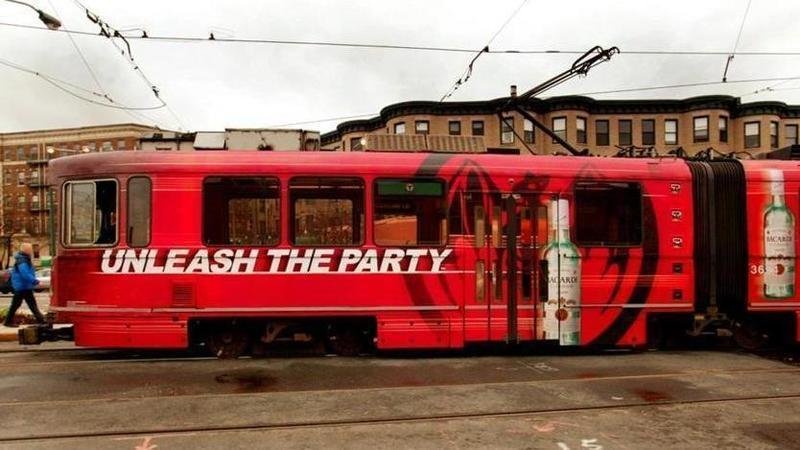Boston to Wrap the "T" in Alcohol Ads
 How much is a kid worth? The Massachusetts Bay Transit Authority (MBTA), facing budget shortfalls, rescinded a five-year-old policy banning alcohol ads on Boston-area public transit this past November. The board—which operates separately from the city of Boston—voted 3-2 to allow alcohol advertising despite Mayor Martin Walsh’s strenuous objections.
How much is a kid worth? The Massachusetts Bay Transit Authority (MBTA), facing budget shortfalls, rescinded a five-year-old policy banning alcohol ads on Boston-area public transit this past November. The board—which operates separately from the city of Boston—voted 3-2 to allow alcohol advertising despite Mayor Martin Walsh’s strenuous objections.
Now some Bostonians, led by the Allston-Brighton Substance Abuse Task Force, are pushing to put them back in place. Alcohol Justice strongly supports their efforts, and have long promoted restricting alcohol ads on public property, including buses, trains, stations, and shelters. Youth are heavy users of public transit, and research confirms the common-sense assumption that greater exposure to alcohol advertising early in life makes a kid more likely to drink when they got older.
“This is short-sighted and reckless, and it sells out the kids,” said Bruce Lee Livingston, Executive Director/CEO of Alcohol Justice. “Whatever money MBTA think they’re making now, they’ll lose it paying for harm to the next generation.”
According to the Allston-Brighton Substance Abuse Task Force, underage drinking costs Massachusetts $1.2 billion yearly—more than 500 times the revenue the ads are expected to raise. And MBTA’s safeguards are ludicrous—while ads cannot be run in T stations where more than 10 percent of riders use student passes, that has nothing to do with where the riders get off. And starting in April, the MBTA intends to abandon the last vestige of subtlety, selling full-train wraps to alcohol companies.
Alcohol Justice urges its colleagues to join the Allston-Brighton Substance Abuse Task Force in putting Boston’s kids first. Do not let the MBTA board lose sight of whom it serves: those who need it most.
TAKE ACTION to get alcohol ads off the T.
Help us hold Big Alcohol accountable for the harm its products cause.
| GET ACTION ALERTS AND eNEWS |
STAY CONNECTED    |
CONTACT US 24 Belvedere St. San Rafael, CA 94901 415-456-5692 |
SUPPORT US Terms of Service & Privacy Policy |


